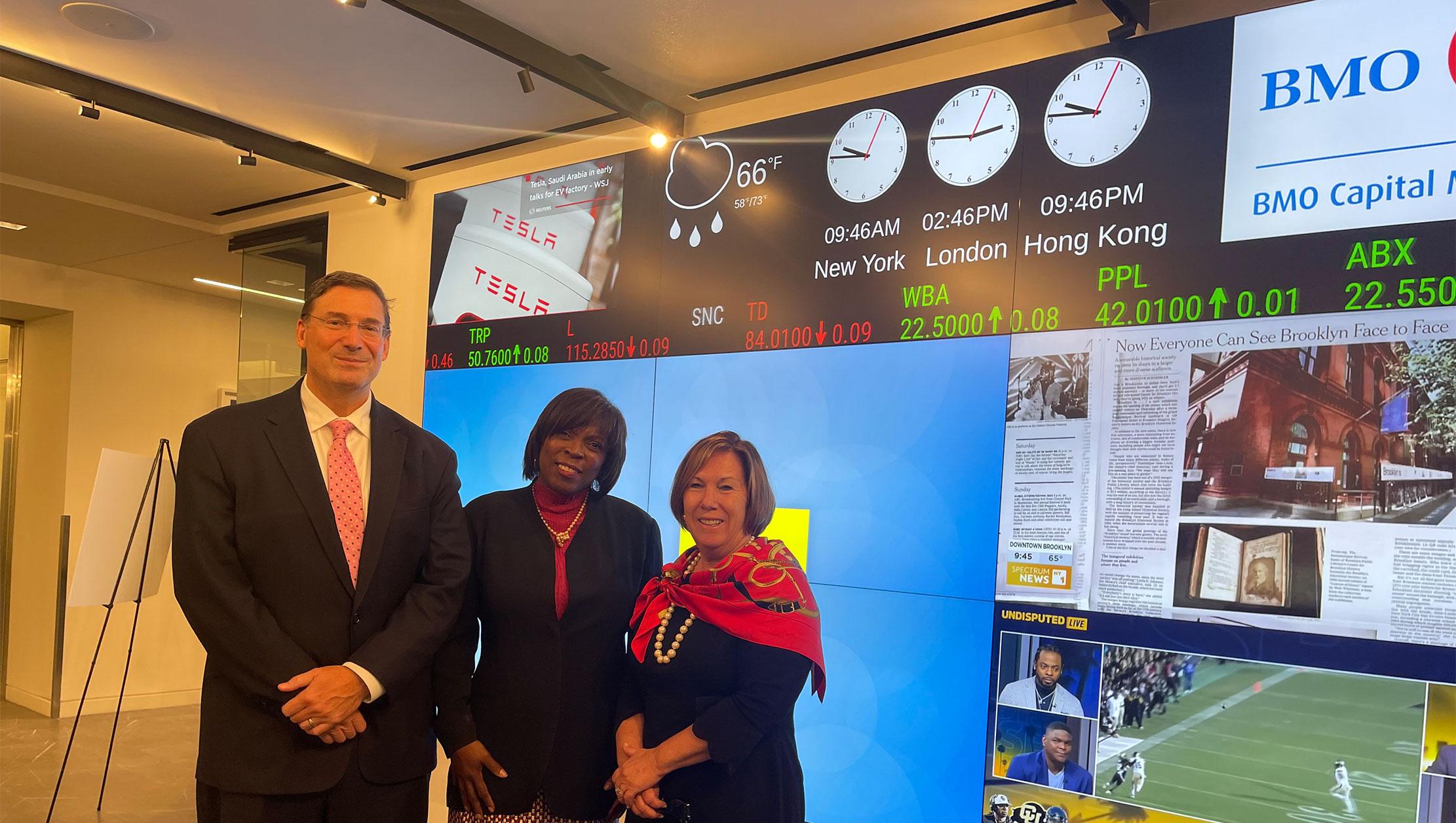For years, people have been focused on finding ways to reduce carbon emissions in the energy and transportation sectors, but more attention is turning to the global food system. For the first time, Food, Agriculture and Water are listed as one of the key pillars at this year’s Conference of the Parties to the UN Framework Convention on Climate Change (COP28) meeting, convening from November 30 to December 12, 2023, in Dubai, United Arab Emirates (UAE), and the largest gathering of its kind in the world to address all topics related to sustainability. Now, private capital and agri-food businesses have a real opportunity to join forces to address financing gaps to achieve a sustainable transformation of the food system.
That was the message from the Transforming Food Systems for Global Impact panel, convened by the COP28 Presidency and represented by Kris Hamel, Head of Food Systems, COP28 Presidency, which kicked off Climate Week in New York and set the stage for COP28. The discussion featured Erica Kuhlmann, Managing Director and Market Executive of BMO Commercial Bank’s Food, Consumer and Agribusiness Group, and Michael Cippoletti, Managing Director and Head of Food, Consumer and Retail for BMO Capital Markets, and was hosted by Ertharin Cousin, Founder, President and CEO of Food Systems for the Future, a nutrition impact investment fund, and one of the foremost experts on public-private partnership in agribusiness. As former Executive Director of the United Nations World Food Programme, Cousin has also been described by Forbes and Time magazine as one of the most influential people in the world.
Transforming the Global Food System
In her opening remarks, Ertharin Cousin praised the decision by COP28 President-Designate Dr. Sultan Al Jaber to make the food system a priority pillar for the first time, describing it as an opportunity for the food system and climate finance to work together to support the Paris Agreement and Sustainable Development Goals.
As Cousin explained, everyone in the global food sector, from agribusiness to finance, can’t keep doing the same thing and expecting different results. “We’re feeding the same people every single year because we’re not investing in support necessary for a transformation of the food system for people to feed themselves,” she said. “That is just a simple reality. And that’s not just in the Global South. It’s a problem in the Global North as well.”
The underlying problem, as Cousin sees it, is a lack of investment. “We’re not talking about investing in more programs to support the hungry poor; we’re talking about creating financial return across the system, from farmer to investors,” she explained.
Agri-Business is an Overlooked Investment Opportunity
Underfunding is a chronic issue in the food sector. A recent report by the Climate Policy Initiative, an independent non-profit research group and international climate policy organization, on the landscape of climate finance found that the global agri-food system only attracts approximately US$30.8 billion of the US$212 billion to US$1.3 trillion it needs in annual investment needs.1
BMO’s Erica Kuhlmann said the bank is answering that call. “We are committed to making meaningful progress and change by supporting climate change solutions,” she said. BMO has already dedicated $300 billion in capital to clients pursuing sustainable outcomes through green, social and sustainable lending, underwriting and advisory services.
Based on how resilient private equity firms have behaved amid market uncertainty and higher capital costs, BMO’s Michael Cippoletti believes agribusiness can attract private capital to its needs, so long as deals are structured and presented in the right way.
Private equity firms are taking market uncertainty and higher capital costs in stride, he said. Whether they are partnering up with other firms or finding creative ways to structure deals, they will invest in good companies across the economic cycle, he explained.
Several participants at the session said there is a compelling opportunity for investors. BCG points to the findings by the Food and Land Use Coalition (FOLU), a coalition of more than 60 organizations and individuals committed to transforming food and land use, which estimates that US$300 to US$350 billion invested in a food systems transformation will return US$5.7 trillion annually by 2030. By 2050, that figure is projected to expand to US$10.5 trillion annually for a return ratio of 15 to 1.2
The participants who attended the session agreed that three central questions need to be addressed at COP28:
What is constraining private climate finance investment in agri-food systems?
What financing products are needed to enhance the quality and quantity of private finance into agri-food systems transformation?
What is required to create a step-change in private funding for agri-food system?
Carving a Path Forward
For Cousin, the path forward must include seats at the table for private capital and the biggest players in the food sector. “We cannot transform the system without multinational agri-food companies,” she said.
Cousin hopes COP28 will not only help attract that investment to the global food system but also shine a light on the systemic problems at play, which are being exacerbated by climate change. “The reality of it is we need to make sure that we’re doing some things differently than what we’ve always done,” she said.
Kuhlmann echoed that sentiment. “We recognize that more must be done to address gaps in financing and to drive increased sources of private capital to achieve the sustainable transformation of the food system,” she said. “It’s a critical priority when it comes to truly transforming food systems for the benefit of all.”
As a leader in advising and financing food and agribusiness companies and producers throughout North America, BMO will be on the ground at COP28 from November 30 to December 12 in Dubai. Our annual BMO Global Farm to Market Conference also brings together leaders to discuss the future of the agriculture and food sector and will take place May 15-16, 2024, in New York.
